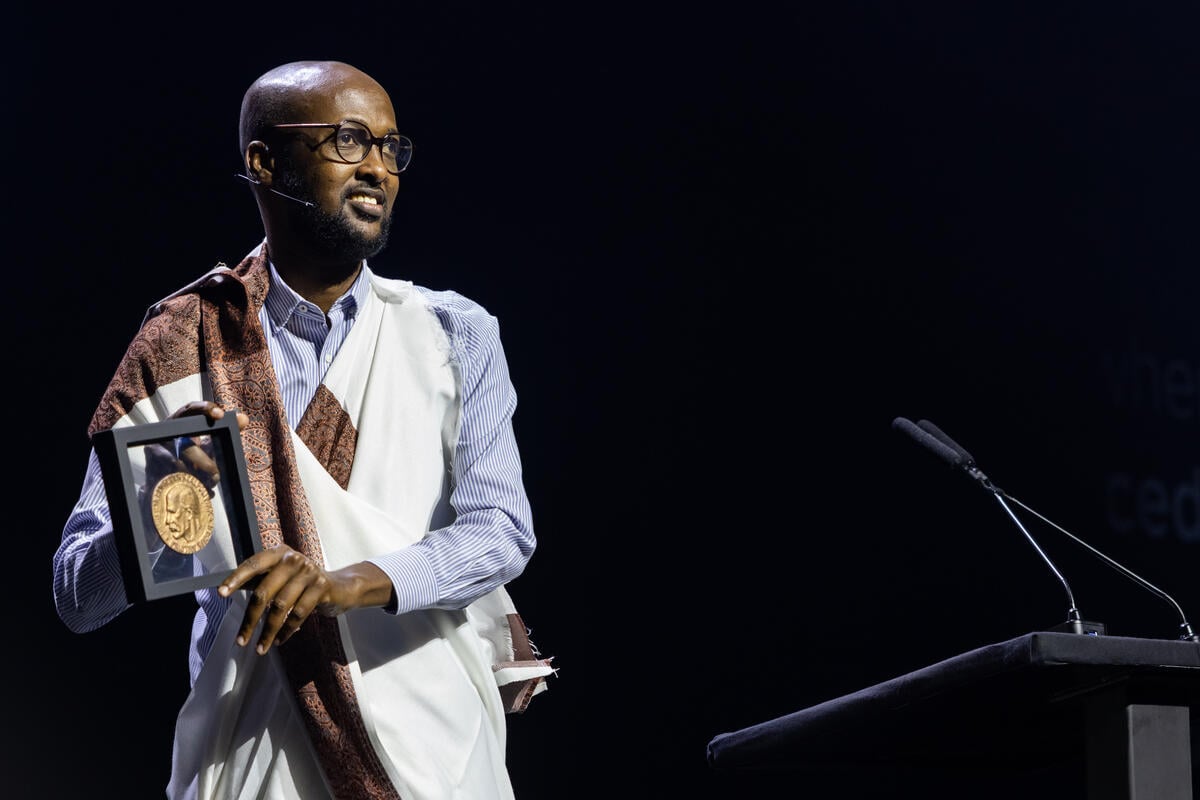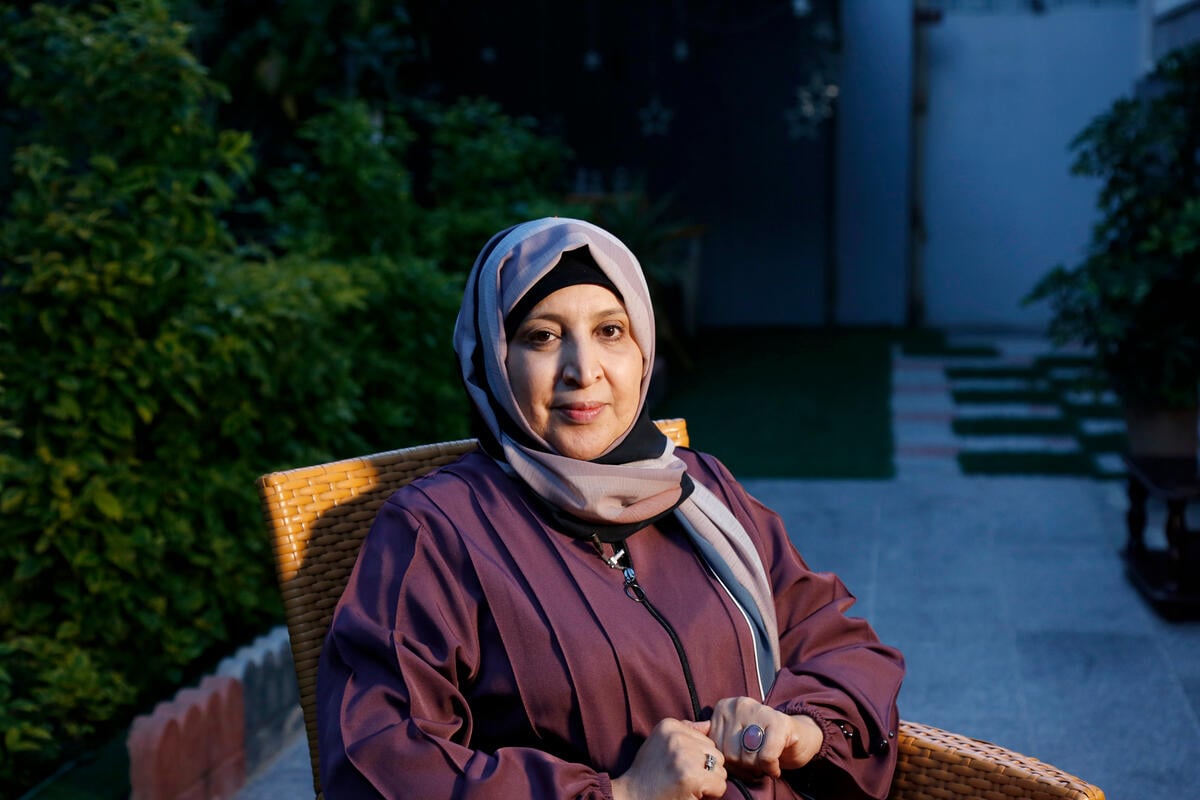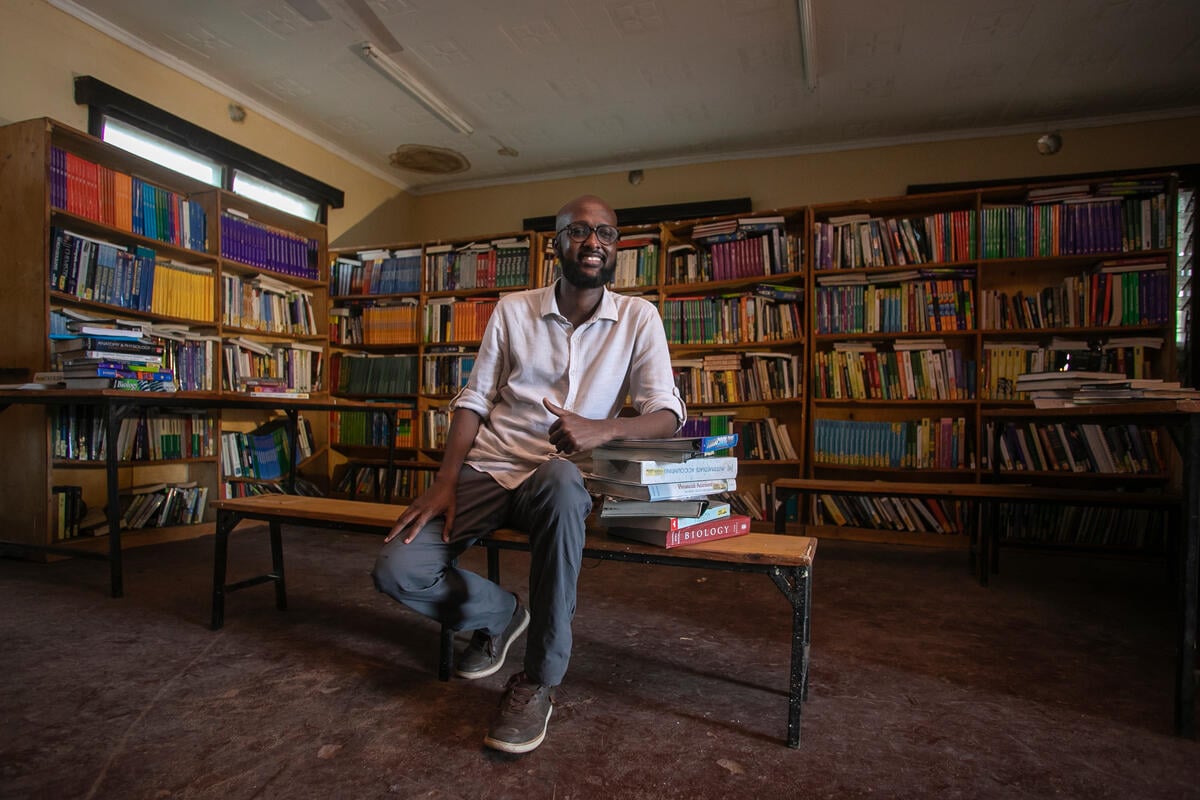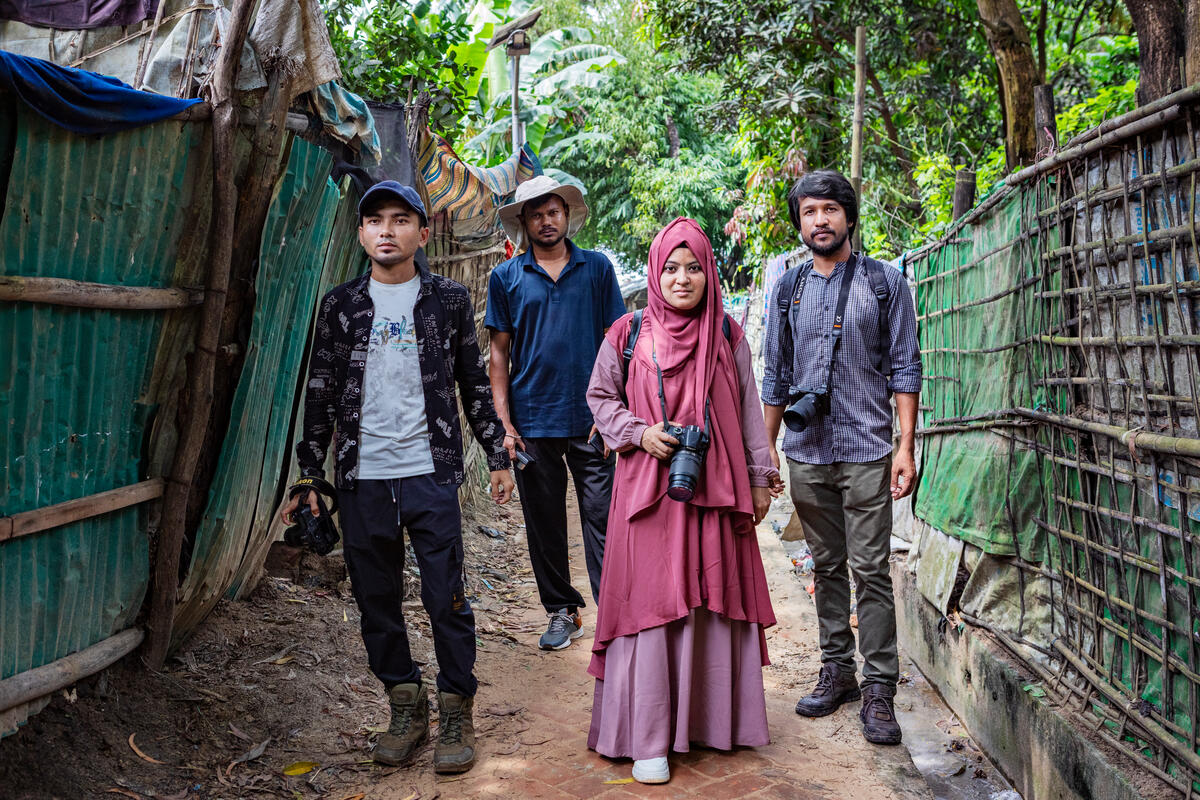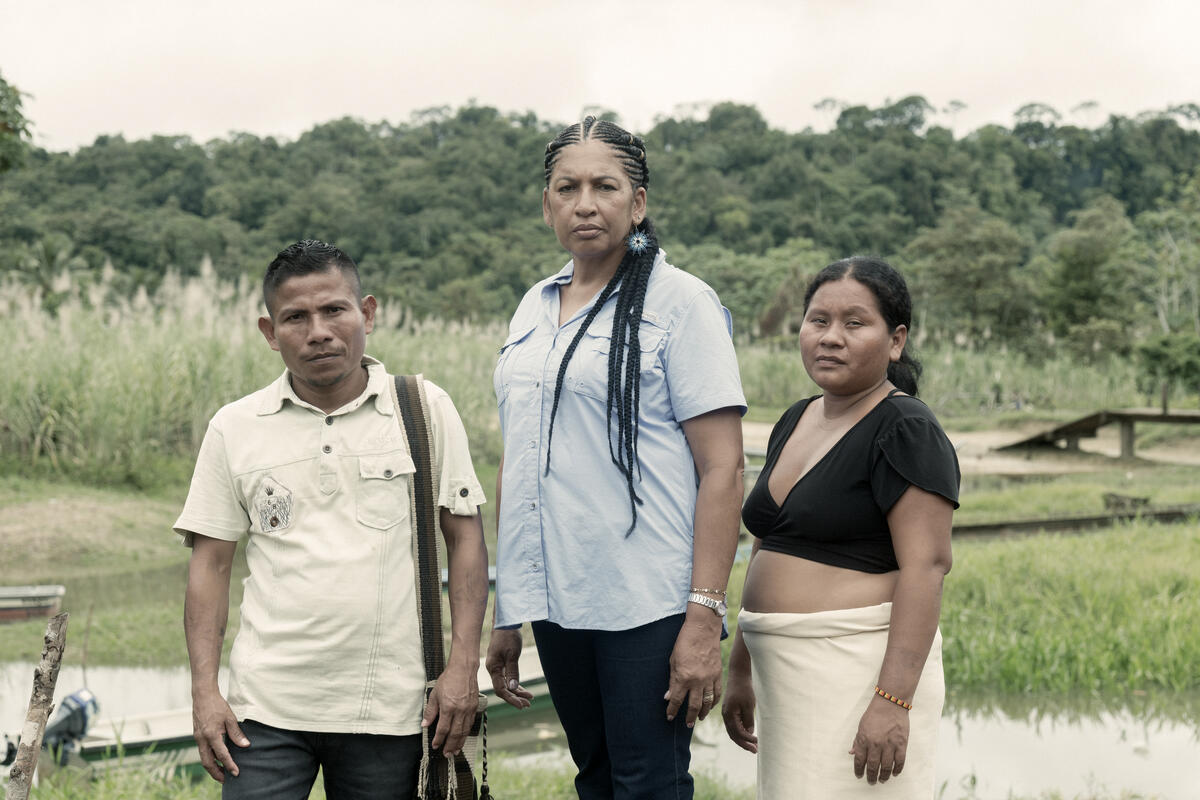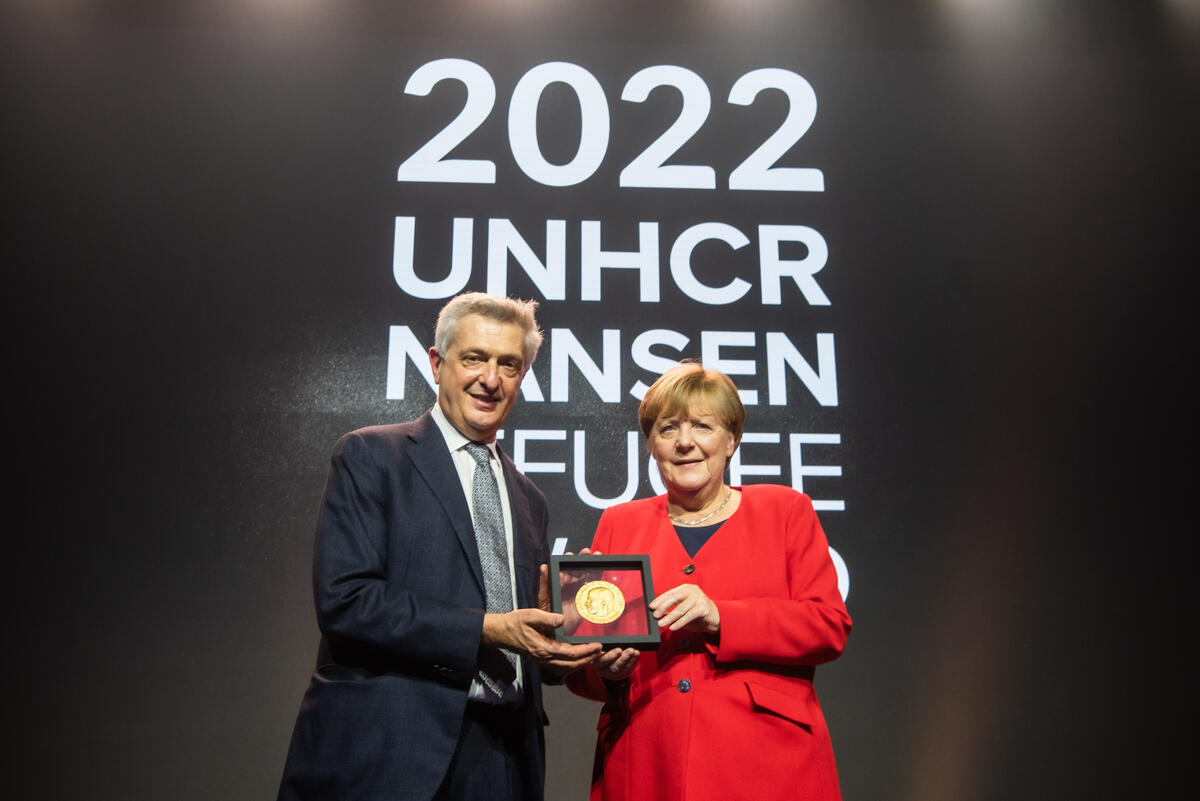Q&A: Interview with Nansen Award winner Alixandra Fazzina
Q&A: Interview with Nansen Award winner Alixandra Fazzina

GENEVA, 9 July (UNHCR) - Photojournalist Alixandra Fazzina, is being recognized as this year's winner of UNHCR's Nansen Refugee Award for her striking coverage of the devastating human consequences of war. Working in remote and often dangerous environments, she portrays the plight of displaced people with compassion and empathy. Her work has been published in major news media around the world driving attention and sympathy to the people she portrays. She is the author of the book, "A Million Shillings - Escape From Somalia", which chronicles the exodus of migrants and refugees along people-smuggling routes from Somalia to the Arabian Peninsula. She recently discussed her work and her reaction to winning the prize with UNHCR Head of Communications, Melissa Fleming. Excerpts from interview:
Your focus is on the humanitarian consequences of war, and yet you came from a fine arts background. What compelled you to start looking at human beings at their most vulnerable?
When I started my work I was embedded with armies. I really got fed up with not being able to see what the side effects were… you just follow the troops in and never see what is happening to the civilians. It's just always been my passion to be the one going in and showing things from the other side. Take the example of Somalia and the story of mixed migration in the Gulf of Aden. All I had seen were short articles about 'X' number of people dying in the crossing. No one had really told the whole story. It is things like that where I say well, then, someone needs to go and do that. For my work, the point is to show the human beings. The flipside is just quoting statistics. People aren't any different anywhere in the world; we are all human beings.
In some ways I'm a migrant myself, I am a UK national and live in Pakistan. But I have a choice to do that, whereas a lot of people have absolutely no choice. Everyone has the idea in their life to make something better; it seems to be an overwhelming human trait. I think people are looked down upon for trying to make their lives better, and that's an attitude that has to change.
When you started in Bosnia there was a lot of news coverage of the war. Now there are far fewer reporters covering the news. Have you noticed a difference?
Definitely. A lot of the magazines I used to work with had these amazing photo-spreads devoted to foreign news. A lot of that market is really gone, but I don't think that means people have any less appetite to see it or to know about these things. There's also a trend in media towards lifestyle stories, and less of that hardcore news that looks at the depressing realities of life.
What was the refugee or IDP situation you covered that struck you as the most devastating?
It would be difficult to say what was the most devastating. I can remember going into Angola… and going behind UNITA [Union for the Total Independence of Angola, a political party] frontlines and witnessing this huge population that no one had access to, like a forgotten people. The area I worked in was known as "El fin del mundo," the end of the world. And it really was. There were thousands and thousands of people just stranded and there was no access to aid.
The story that had the most affect on me was in Somalia. I originally set out following two groups of people, and one of the groups I was following were all travelling together on one boat. They started out with 135 people and only 11 survived. I remember setting out with these people on their very last day in Somalia. They had such intrepid joy. Because people knew me, they were asking for me to take pictures of their last steps in Somalia. That will haunt me forever, knowing that they didn't make it across with their lives.
They took a smugglers boat to Yemen?
Exactly. And when I came to find them in Yemen, they had all died. I mean, I tracked down a few people. They were incredibly traumatized living through something like that. The chances of picking up all the pieces again are very slim. It had a very huge effect on them, to witness so much death.
What are you aiming to achieve with your images?
Nobody appreciates truly that the world is on the move. I'm British. There are four million British people working around the world, but people come to the UK and they are looked down upon. And they are doing it for exactly the same reasons. I think there has to be a big change in attitude, and I think part of it is because people look in terms of numbers too much.
I think that photography has an ability to draw people in. It's a very singular moment in time… when you turn the page of a newspaper or a book and see a photo, it really draws you into the story. I hope my photography gives someone else a moment to stand still, take the time to look, look properly, and engage in a slightly different way with the world.
If you want to change attitudes, for me the best way to do it is to tell someone's story and to show what they have actually gone through and hope the response is empathy. That people look at my work and say "ooh, gosh, what's going on there," and they read into it, and they understand something they never knew about before, or see things they've never taken the time to look at or think about.
Which set of photographs, in your mind, had the most impact?
One I can think of is the story of one of the Somali refugees called Salima, a 19-year-old girl I met in Yemen. When I met here she was in a trafficker's house, she had fallen into this loop of traffickers because she had nothing. She had left her home in Mogadishu following a mortar attack on her house that had killed her son and husband while she was out buying bread. Having really nothing else left to lose, she decided to make the trip to Yemen, but she was several months pregnant when she left Mogadishu. She actually gave birth on the boat travelling across the Gulf of Aden, on the smuggler's boat. Subsequently, the baby was thrown in to the sea by the smugglers. So after having arrived there and being transited through the UNHCR centres and then arriving in Aden, and within two months of having been a mother, and a teenager, and her whole life was totally destroyed, she was preyed upon by traffickers who were then planning to take her to Saudi Arabia. When I went to find her two weeks later, she had gone.
What does winning the Nansen Award mean to you?
No other journalist or photographer has ever won it before - I wasn't sure if I really stood a chance. But it's really amazing, a little overwhelming.
It's remarkable to be acknowledged in this way for my work, a lot of what I do is from my own initiative. This is an immense recognition of what I'm doing. I think people should take notice a bit more, and hopefully the award will at least make a few people do that.
By Melissa Fleming in Geneva, Switzerland


